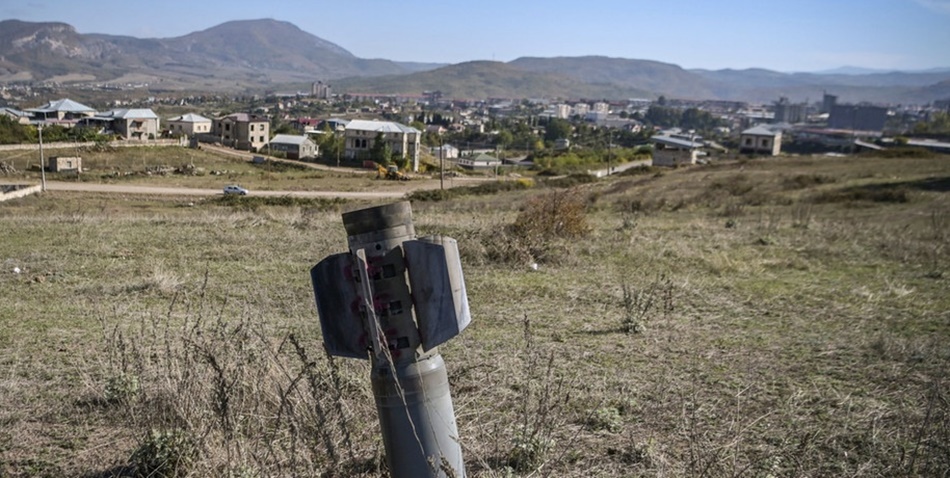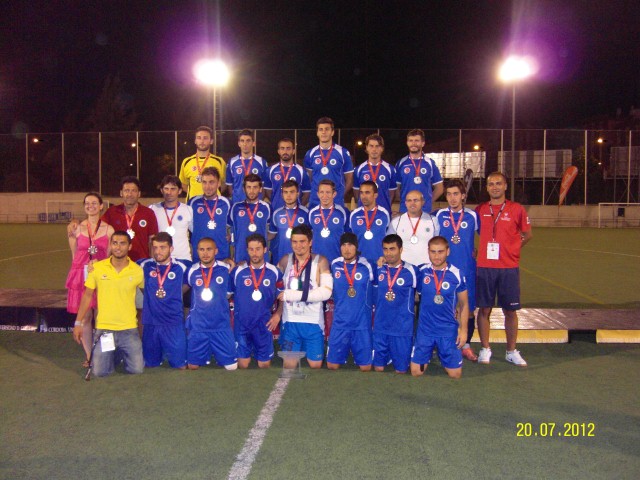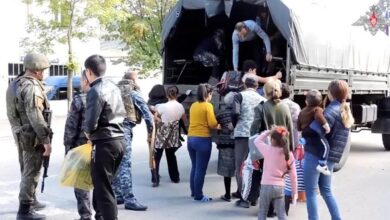EU sends observers to South Caucasus
A bloody conflict between Armenia and Azerbaijan over the Nagorno-Karabakh border region has been smoldering for years.

The European Union wants to contribute to easing the conflict with a civilian observer mission.
Hundreds of people have already died in the clashes over the Nagorno-Karabakh region in the South Caucasus. Armenia and Azerbaijan each claim control of the border area, and the conflict keeps escalating.
In order to bring stability to the region, the European Union wants to set up a civilian observer mission on the spot. This was decided by the foreign ministers of the 27 member states in Brussels. The mission called EUMA (European Union Mission in Armenia) is scheduled to start at the end of February.
Goal: Fewer incidents in the border area
According to information from those close to EU foreign policy chief Josep Borrell, 100 men and women are to be sent to Armenia in the border region of Nagorno-Karabakh in the coming weeks. Germany wants to make a substantial contribution. Among other things, routine patrols at the border are planned with the aim of better understanding the situation on site, according to a communication from the European Council.
Borell spoke of a “new phase in EU engagement in the South Caucasus”: “The EU will continue to support de-escalation efforts and is committed to working closely with both sides towards the ultimate goal of a sustainable peace,” he said in Brussels.
The mission’s mandate states that the strategic objective is to help reduce the number of incidents in the conflict and border area. In addition, it is about reducing the risk for the population living there and thus contributing to the normalization of relations between Armenia and Azerbaijan.
Armenia had applied for the mission to the EU, the mandate runs for two years. In October, the EU sent around 40 experts to the border area for an initial period of two months.
Experts: Moscow’s influence in the South Caucasus is waning
According to information from those around him, Borrell does not expect the mission to further intensify tensions between the EU and Russia. According to experts, Moscow’s influence in the South Caucasus is dwindling because of the Russian war of aggression in Ukraine.
Decades of conflict
Armenia and Azerbaijan have been at odds over the Caucasus region of Nagorno-Karabakh for decades. Since the collapse of the Soviet Union, the area has belonged to Azerbaijan under international law. However, the majority of people living in the region are Armenians. In the 1990s, a bloody war broke out in which Armenia gained control of Nagorno-Karabakh. In 2020, the frozen conflict flared up again, killing more than 6,500 people.
This time Azerbaijan gained control of the region, Armenia had to give up a large part of the territories. Since then, there have been repeated violent clashes: in mid-September, Azerbaijan attacked Armenia, killing more than 200 people. A ceasefire is currently in effect.



